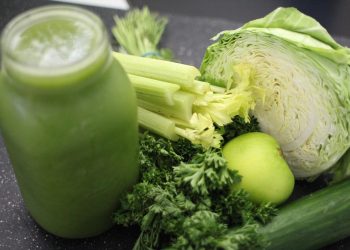Boosting your fertility naturally is more than just a goal; it’s a journey toward understanding your body and nurturing it to its fullest potential. If you’re on the path to parenthood, knowing how to enhance your fertility can empower you. Let’s explore seven compelling, natural ways to boost your fertility today.
Contents
What is Fertility and Why Does it Matter?
Fertility is your body’s ability to conceive and carry a child. It’s a complex interplay of hormones, health, and lifestyle choices. Understanding your fertility is crucial, whether you’re planning to start a family soon or just thinking about it for the future. Your fertility impacts not only your chances of conception but also your overall health and well-being. Every step you take toward improving it is a step toward a brighter, healthier future for you and your family.
1. Nourish Your Body with Whole Foods
Eating a balanced diet rich in whole foods is one of the best ways to boost fertility. Your body thrives on nutrients that come from natural sources. Focus on these:
- Fruits and Vegetables: Aim for a rainbow of colors. Dark leafy greens, berries, and citrus fruits provide antioxidants that fight off free radicals.
- Whole Grains: Oats, quinoa, and brown rice keep your energy levels stable and your blood sugar in check.
- Healthy Fats: Incorporate avocados, nuts, and olive oil. These fats are essential for hormone production and can improve egg quality.
Studies show that women who consume more whole foods have a higher likelihood of conceiving. Harvard Health provides a wealth of information on how diet affects fertility.
2. Maintain a Healthy Weight
Your weight can significantly influence your fertility. Being underweight or overweight can disrupt hormonal balance, making it harder to conceive. Here’s how to maintain a healthy weight:
- Monitor Your BMI: Aim for a body mass index (BMI) of 18.5 to 24.9.
- Engage in Regular Exercise: Aim for at least 150 minutes of moderate exercise per week. This can include walking, swimming, or yoga.
- Avoid Extreme Dieting: Quick fixes often lead to nutritional deficiencies that can affect your reproductive health.
A healthy weight not only boosts your fertility but also supports a healthy pregnancy when the time comes.
3. Reduce Stress Levels
Stress can wreak havoc on your body, including your fertility. When you’re stressed, your body produces cortisol, which can interfere with ovulation. Here’s how you can manage stress:
- Practice Mindfulness: Engage in meditation or deep-breathing exercises. Just a few minutes a day can make a difference.
- Physical Activity: Exercise releases endorphins, which can help reduce stress. Find an activity you love, whether it’s dancing or hiking.
- Connect with Others: Talk to friends or join a support group. Sharing your feelings can lighten the emotional load.
The link between stress and fertility is well-documented, as noted by the American Psychological Association. Finding ways to reduce stress is essential for your overall well-being.
4. Prioritize Sleep
Your body repairs and rejuvenates during sleep, making it vital for your reproductive health. Here’s how to ensure you get quality rest:
- Establish a Sleep Routine: Go to bed and wake up at the same time every day, even on weekends.
- Create a Relaxing Environment: Keep your bedroom cool, dark, and quiet. Consider using blackout curtains or a white noise machine.
- Limit Screen Time: Turn off electronic devices at least an hour before bed. The blue light emitted by screens can interfere with melatonin production.
Sleep is not just a luxury; it’s a necessity. The Centers for Disease Control and Prevention emphasizes the importance of sleep for overall health, including reproductive health.
5. Stay Hydrated
Water is life, and your reproductive system is no exception. Staying hydrated helps your body function optimally. Here’s how to ensure you’re drinking enough:
- Aim for 8-10 Glasses a Day: This varies with activity level and climate, so listen to your body.
- Incorporate Hydrating Foods: Foods like cucumbers, oranges, and strawberries have high water content and can contribute to your hydration.
- Limit Sugary Drinks: Opt for water or herbal teas instead of sodas or sugary juices.
Proper hydration supports every cell in your body, including those involved in reproduction.
6. Avoid Toxins
Environmental toxins can disrupt your hormonal balance and affect your fertility. Here are ways to minimize exposure:
- Choose Organic When Possible: Opt for organic fruits and vegetables to reduce pesticide exposure.
- Be Mindful of Household Products: Replace harsh chemicals with natural alternatives for cleaning and personal care.
- Limit Plastic Use: Use glass or stainless steel containers instead of plastic, especially for food storage.
The impact of toxins on fertility is a growing concern, and resources like the Environmental Protection Agency can provide additional information on minimizing exposure.
7. Consider Supplements Wisely
While a balanced diet is essential, certain supplements can support your fertility journey. Before starting any new supplement, consult with a healthcare provider. Here are some commonly recommended options:
- Folic Acid: Vital for women trying to conceive, it helps prevent neural tube defects.
- Vitamin D: Supports overall reproductive function and can improve fertility.
- Omega-3 Fatty Acids: These promote hormonal balance and overall health.
Supplements can complement a healthy lifestyle, but they should not replace whole foods. Always prioritize getting nutrients from your diet first.
Bottom Line
Boosting your fertility naturally is within your reach. By nourishing your body, managing stress, prioritizing sleep, and adopting healthy habits, you can pave the way for a successful conception. Remember, every small change can have a significant impact on your journey to parenthood.
Take Action Today: Start with one or two changes from this list and gradually incorporate more. Your body will thank you!
FAQ
What are the best foods for boosting fertility?
Focus on whole foods like fruits, vegetables, whole grains, and healthy fats.
Can stress really affect my fertility?
Yes, high stress levels can interfere with ovulation and hormonal balance.
How long should I wait to see changes in my fertility?
Changes may take time. Aim for a few months of consistent healthy habits to see improvements.
Is it necessary to take supplements for fertility?
Supplements can help, but they should complement a healthy diet rather than replace it. Always consult a healthcare provider first.
Embrace your journey with confidence. You have the power to nurture your body and boost your fertility naturally.
Get Your FREE Natural Health Guide!
Subscribe now and receive our exclusive ebook packed with natural health tips, practical wellness advice, and easy lifestyle changes — delivered straight to your inbox.














